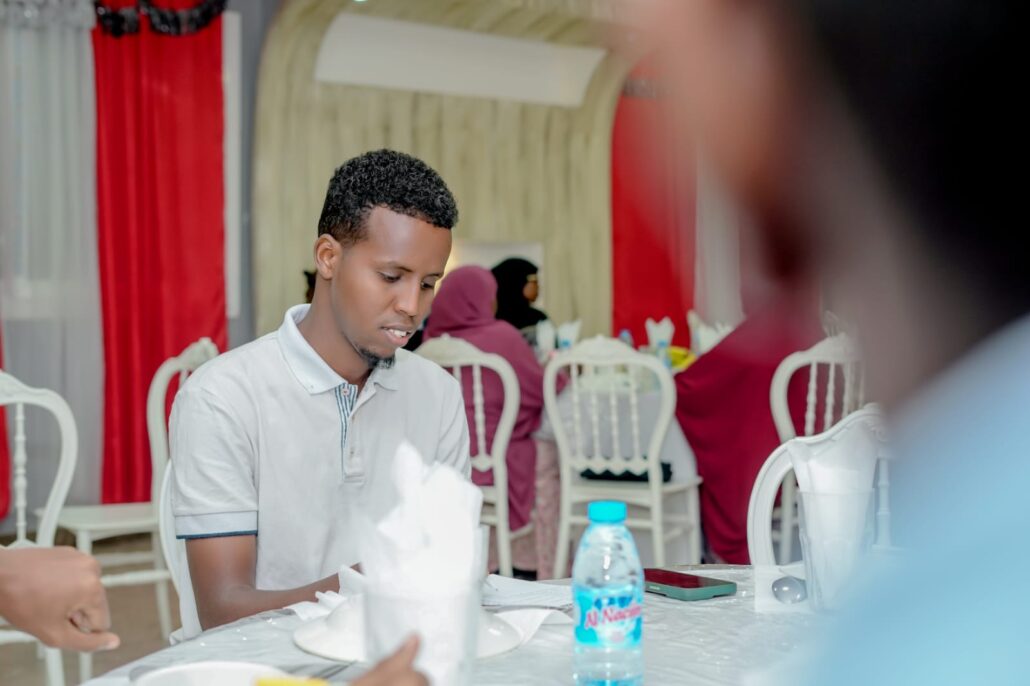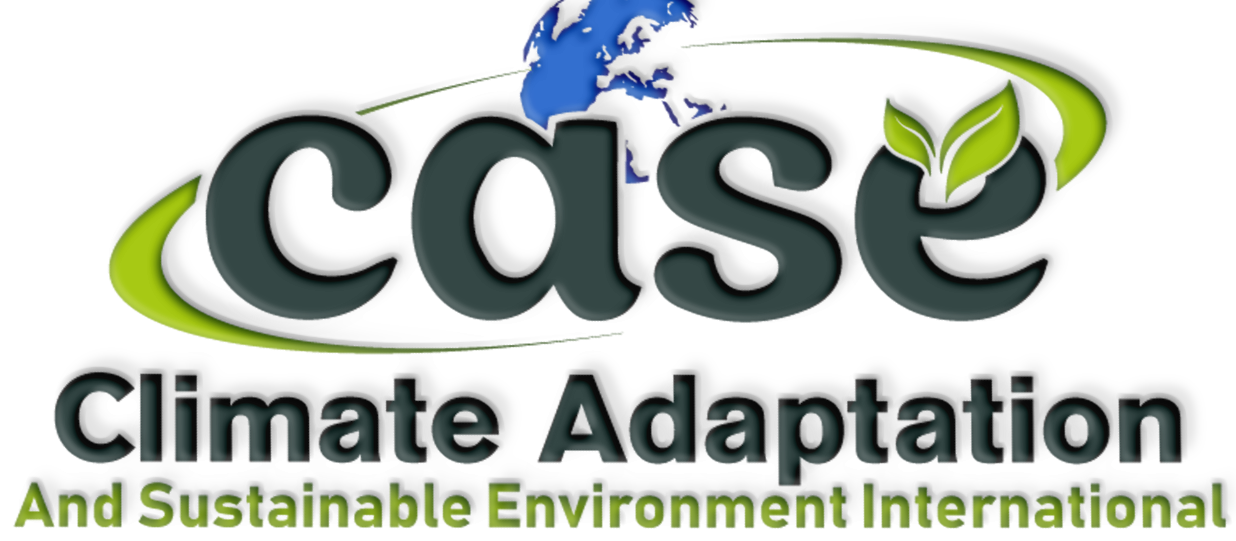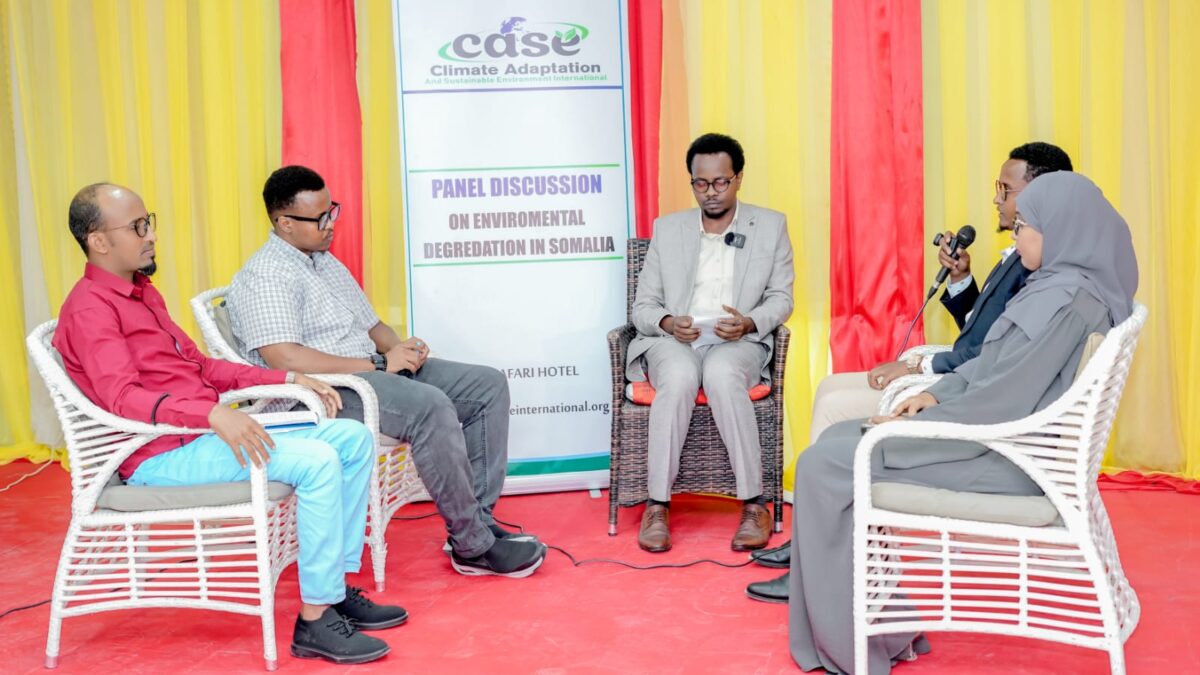
Building Resilience: Climate Adaptation Training in Mogadishu, Somalia
Panel Discussion Highlights Urgent Need for Action on Environmental Degradation in Somalia
In a timely and insightful event hosted by Case International at the prestigious Safari Hotel, a panel discussion illuminated the urgent challenges of environmental degradation facing Somalia. Against the backdrop of escalating climate change impacts and unsustainable practices, the discussion brought together experts, policymakers, and stakeholders to catalyze action and drive transformative change.
Environmental degradation poses a significant threat to Somalia’s fragile ecosystems and the livelihoods of its people. From deforestation and land degradation to pollution and loss of biodiversity, the consequences of unchecked environmental decline are far-reaching and profound. Against this backdrop, the panel discussion served as a crucial platform for dialogue, collaboration, and problem-solving.
Key themes that emerged during the discussion included:
Understanding the Root Causes: Participants delved into the underlying drivers of environmental degradation in Somalia, including unsustainable land use practices, deforestation, overgrazing, and inadequate waste management. By identifying these root causes, the panelists laid the groundwork for targeted interventions and policy reforms.
Climate Change Impacts: The panelists highlighted the interconnectedness of environmental degradation and climate change, emphasizing the need for holistic approaches to address both challenges. Rising temperatures, erratic rainfall patterns, and sea-level rise are exacerbating existing vulnerabilities, posing grave risks to food security, water resources, and coastal communities.
Role of Governance and Policy: Discussions centered on the critical role of governance and policy frameworks in addressing environmental degradation. Participants underscored the importance of strengthening environmental governance, enhancing regulatory enforcement, and promoting sustainable land management practices through inclusive policies and incentives.
Community Engagement and Empowerment: Recognizing the pivotal role of communities in environmental conservation, the panelists emphasized the importance of grassroots engagement and empowerment. By involving local communities in decision-making processes, fostering environmental awareness, and supporting community-led initiatives, stakeholders can amplify the impact of conservation efforts.
Cross-Sectoral Collaboration: Collaboration emerged as a recurring theme throughout the discussion, with panelists highlighting the importance of partnerships across sectors and stakeholders. By fostering collaboration between government agencies, civil society organizations, academia, and the private sector, participants emphasized the potential for collective action to drive meaningful change.
Innovative Solutions and Technologies: The panelists showcased innovative solutions and technologies that hold promise for addressing environmental challenges in Somalia. From renewable energy initiatives to nature-based solutions and sustainable agriculture practices, participants explored a range of strategies for mitigating environmental degradation and building resilience.

Participant of the panel discussion on environmental degradation in Somalia
As the discussion concluded, participants reaffirmed their commitment to collective action and urged stakeholders to translate insights into concrete measures. From policy reforms and community-driven initiatives to investment in sustainable infrastructure and capacity-building efforts, the panel discussion underscored the need for coordinated, multi-stakeholder responses to environmental degradation in Somalia.
The panel discussion hosted by Case International at Safari Hotel served as a catalyst for dialogue, collaboration, and action on environmental degradation in Somalia. By bringing together diverse perspectives and expertise, the event laid the groundwork for transformative change and renewed commitment to safeguarding Somalia’s natural resources for generations to come. As we confront the complex challenges of environmental degradation, let us heed the call to action and work together to forge a more sustainable and resilient future for Somalia.

